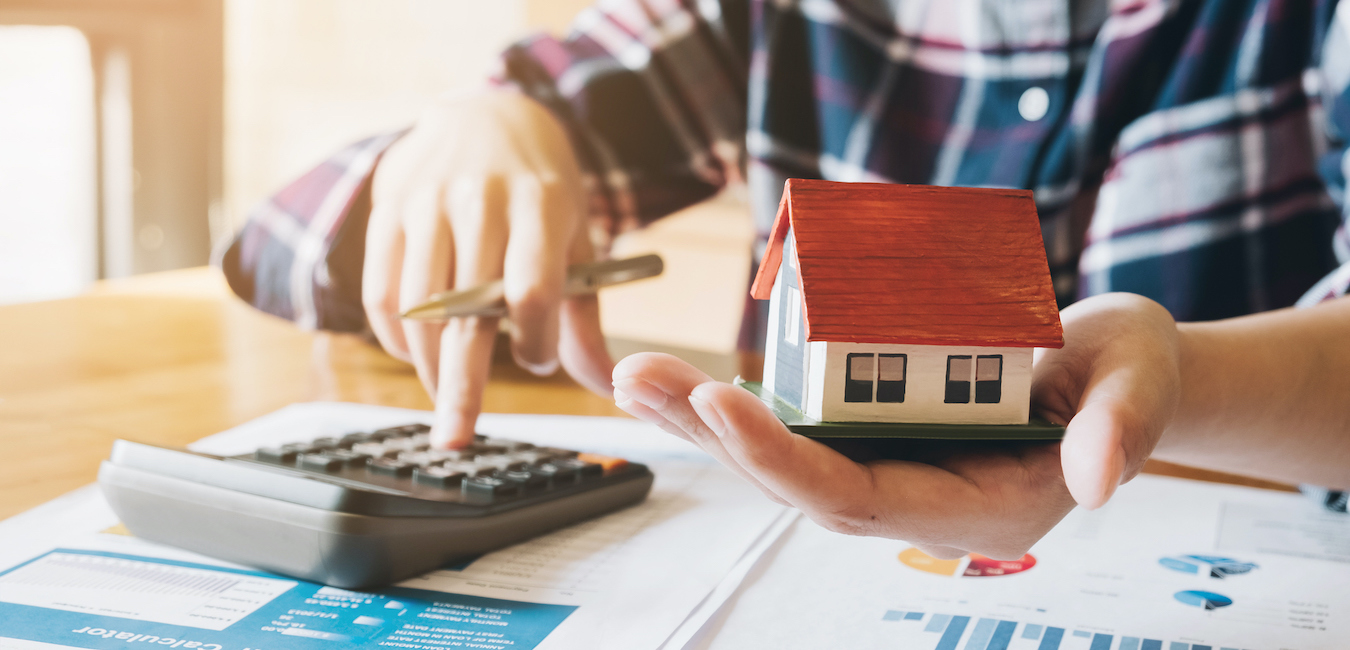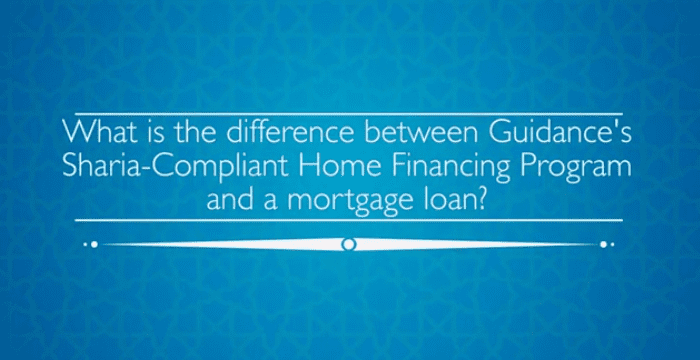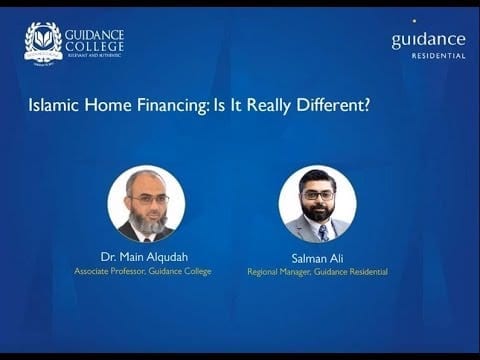What Exactly Is Refinancing a Home?

When you sign a conventional home loan, you’re often agreeing to an interest rate and monthly payment that you’ll have for the next 30 years. But if interest rates drop, you might be paying more in interest than you need to. And, if your financial situation changes, you might have trouble making your mortgage payments.
Refinancing a home can provide a solution to these and other challenges, but it’s important to understand what’s involved in refinancing so you can make the best decision for your situation.
What Does It Mean to Refinance a House?
Conventionally speaking, refinancing your home means you essentially start over with a new mortgage with different terms. Your lender pays off and closes out your old mortgage, and then issues you a new one with different terms.
The purpose of refinancing a home is to make your mortgage work better for you. You might choose to refinance so you can take advantage of better rates than those available to you when you originally closed on your home. Or, you might want to change from an adjustable rate to a fixed-rate conventional mortgage so you can avoid higher interest rate fluctuations. Or, you might want to refinance your conventional mortgage into an Islamic mortgage to better align with your values.
Related Read: The Difference Between an Islamic and Conventional Mortgage
Islamic mortgages themselves can also be refinanced. You might refinance so you have a shorter-term and can pay off your home sooner, or you might do a cash-out refinance to withdraw some of your home’s equity as cash.
Ultimately, refinancing can help you to save money and more easily afford your mortgage payments.
The Home Refinancing Process: How It Works
What happens when you refinance a home? The process involves multiple steps.
When you refinance a conventional mortgage, you’ll start by applying to several lenders so you can find the best interest rate and mortgage terms. During the application process, you’ll need some documents, like pay stubs, bank statements, and W-2s.
Once you’re approved, you may have the option to lock in an interest rate so the rate doesn’t increase before you’re able to close. Your application will move into the underwriting process during this time. Your lender will usually require an appraisal of your home to establish its current value, which can affect your refinancing options.
Finally, you’ll close on your new loan. Your lender will give you a Closing Disclosure that outlines the final details of the loan, including your closing costs, your new interest rate, and your new monthly mortgage payments.
When you refinance to an Islamic mortgage, the steps are simple. In Guidance Residential’s refinancing process, start by completing a pre-qualification form. Once you’re pre-qualified, an Account Executive is available to assist you in applying for refinancing and providing the necessary documentation.
From there, your home’s value will be determined, and you’ll receive the best riba-free home financing solution possible at a competitive rate. Refinancing with Guidance Residential is always riba-free: our Shariah-compliant mortgage product, the Declining Balance Co-Ownership Program, is based on a partnership rather than on using interest to generate profits.
And we are NOT a bank. Here’s why this is so important:
You can track your refinancing application status through our customer portal, and you’ll receive status notifications about important milestones throughout the application process, so you’re always up to date with the latest information.
Once you’re approved, you’ll arrange for your closing costs, sign your contracts, and enjoy your new halal-financed mortgage—plus the peace of mind it brings you!
Related Read: Do You Have to Be Muslim to Get an Interest-Free, or Riba-Free, Mortgage?
Is Home Refinancing Right for You?
Before you decide to refinance your home, it’s important to decide if refinancing is right for your goals and your situation. You’ll need to consider important factors like what you will pay in closing costs, how long you plan to stay in your home, and how refinancing will impact your monthly payments.
If you’re refinancing to save money, you’ll need to make sure that it really makes financial sense. If refinancing only slightly lowers your payments and you plan on moving in a few years, you probably won’t be in your home long enough to save enough money to cover what you’ve paid in refinancing closing costs. But if you plan to live in your home for the next decade, refinancing may make sense and could save you significant money.
Top Reasons to Refinance a Home
There are several reasons to refinance a home. The following are some of the most common:
Lower rate
When rates are lower than they were when you closed on your home, you could lock in a lower rate by refinancing. A lower rate can decrease the total amount you pay over the lifetime of your loan.
Lower monthly payment
You can also refinance to lower your monthly payment. Lower rates will reduce your monthly payment, but you might also refinance for a longer contract term, which will reduce your monthly payments. This strategy might be helpful if you don’t plan to stay in your home long-term and want to be able to save money in the meantime.
Reduced pay-off term
Alternatively, if you want to save money on your mortgage, you might refinance to take advantage of a shorter term. Reducing your mortgage from a 30-year to a 15-year term means you’ll have higher monthly payments, but you’ll ultimately pay less in interest and will be able to pay your home off faster.
Cash-out
With a cash-out refinance, you can withdraw your home equity as cash, and can then use that cash for other important bills, like financing a major home repair or paying off your debts for Hajj.
Faith
If you took out a conventional mortgage, the benefits of a faith-based mortgage, like an Islamic mortgage, might be appealing and could be a better fit with your beliefs. You might refinance so you can enjoy the benefits of Shariah-compliant financing.
Related Read: How Does Islamic Financing Work?
Home Refinancing FAQs
It’s important to make sure that refinancing is the right choice for you, and you’ll also need to find the right financier to help you. The following FAQs can help you to better understand how home refinancing works, and they highlight some important details that you’ll want to discuss with your lender so you can avoid making any costly mortgage mistakes.
What Does It Cost to Refinance?
Just like when you paid closing costs on your home, you’ll also need to pay closing costs on your refinance. Depending on the home financing partner you’re using and the state you’re located in, these closing costs can consist of several expenses:
- Application fee, which you’ll pay even if your refinance application is rejected
- Appraisal fee, which can run between $300 and $500
- Attorney fees
- Title search and insurance
In some instances, expenses like application fees and title searches may be waived. Your closing costs usually add up to about 2 to 3% of your balance. You may need to pay those costs at closing, or you could potentially roll them into your balance.
Check out our handy refinance calculator for a more accurate estimate.
When Should I Refinance My Home?
It can be a good idea to refinance your home if refinancing could lower your monthly payment, help you build equity, or shorten your contract term. Sometimes, refinancing can also give you access to a lump sum of money that you need for home repairs or improvements.
But before you decide to refinance, do some math and make sure that the money that you’ll save is more than what you’ll pay in closing costs. It’s also important to consider how long you plan to stay in the home since it will take time before refinancing starts to save you money. You’ll need to think carefully about whether refinancing is the right choice.
How Soon After Closing Can I Refinance?
If you have a conventional mortgage, you can refinance your home immediately, but it’s important to make sure that this choice makes financial sense. According to The Mortgage Reports, other types of refinancing have different wait periods:
- Cash-out refinance: Six-month waiting period, and you need to have at least 20% equity
- Government refinance, like FHA and VA mortgages: 210-day waiting period
- USDA refinance: 6- to 12-month waiting period
Related Read: Why Refinance Your Home with Islamic Home Financing
Will Refinancing My Home Affect My Credit?
When you refinance your home, your home financing company will perform a hard credit inquiry, which can cause a slight drop in your credit score. If you plan to apply to multiple financiers, submit those applications within a 14- to 45-day period, since most credit scoring platforms consider hard credit inquiries submitted in a short timeframe as one inquiry. This can minimize the impact on your credit score.
When you close on your refinance, you will be closing out a loan, which can lower your score. Keep in mind that these effects are temporary, and if you keep your new mortgage in good standing, your score will go up again.
How Do I Qualify for Home Refinancing?
Before you consider applying for home refinancing, you’ll want to make sure that you meet the common refinancing requirements. You’ll need a decent credit score, often 620 or higher, plus substantial equity in your home; 20% or higher is ideal.
You’ll also need a lower debt-to-income ratio, which consists of your other monthly payments, like car payments and credit card debt, when compared to your monthly income. If your debt-to-income ratio is greater than 43%, you may have trouble getting approved for refinancing.
Taking the time to make sure that you meet all of these requirements can increase your chances of being approved for refinancing.
Get pre-qualified for refinancing in fewer than 10 minutes with Guidance Residential.
Originally published May 2022, updated May 2024.




